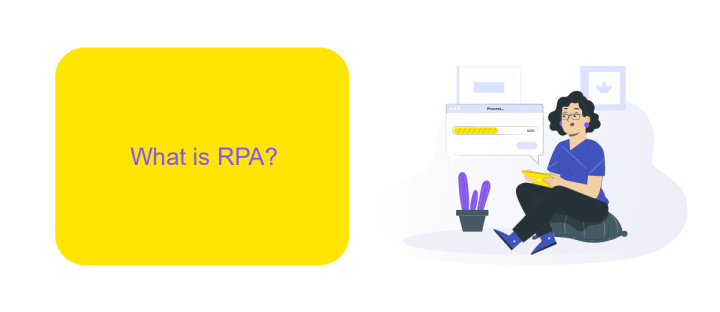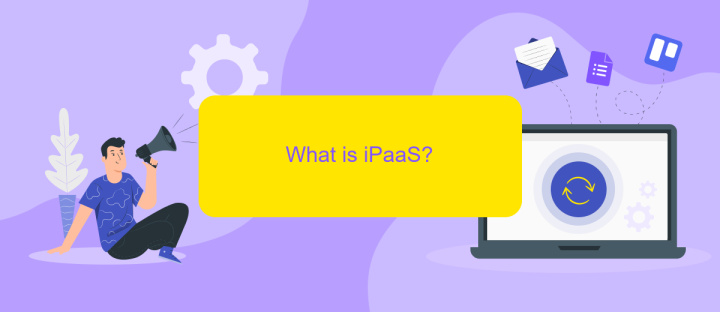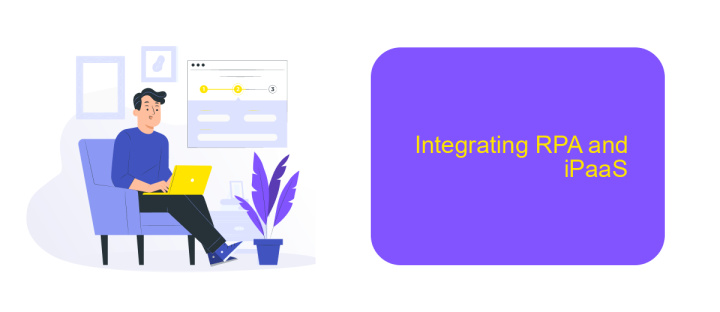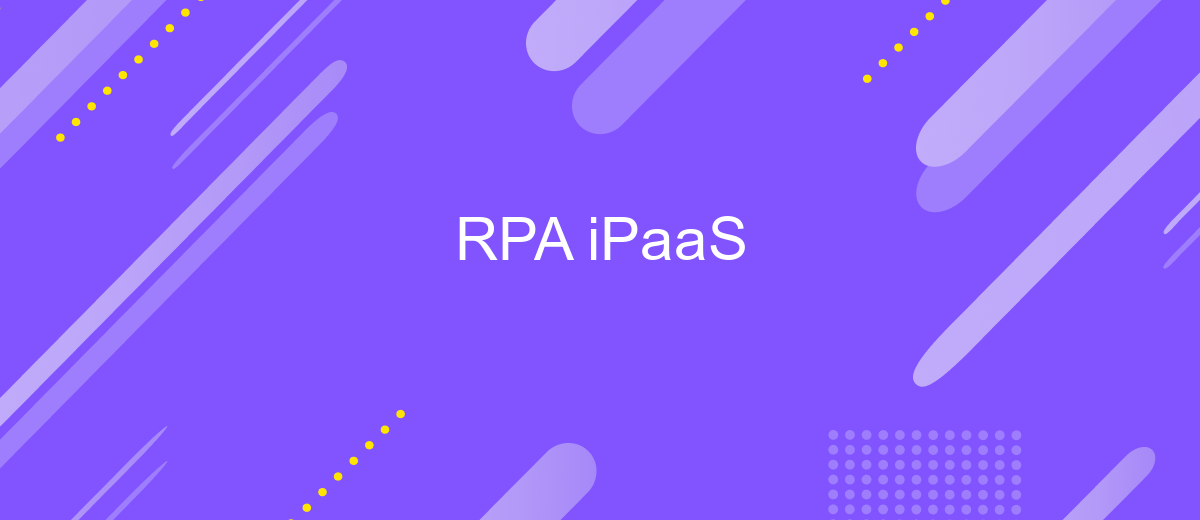RPA iPaaS
Robotic Process Automation (RPA) and Integration Platform as a Service (iPaaS) are revolutionizing the way businesses operate by streamlining workflows and enhancing efficiency. RPA automates repetitive tasks, while iPaaS facilitates seamless integration between diverse systems and applications. Together, they offer a powerful combination that drives digital transformation, reduces operational costs, and improves overall productivity.
Introduction
Robotic Process Automation (RPA) and Integration Platform as a Service (iPaaS) are two transformative technologies that are reshaping the way businesses operate. RPA automates repetitive tasks, freeing up human resources for more strategic activities, while iPaaS facilitates seamless integration between disparate systems, enhancing data flow and operational efficiency.
- RPA: Automates routine and repetitive tasks.
- iPaaS: Integrates various applications and data sources.
- ApiX-Drive: Simplifies integration with a user-friendly interface.
Combining RPA with iPaaS, businesses can achieve unparalleled efficiency and agility. Tools like ApiX-Drive make it easier to set up these integrations, offering a no-code solution that allows even non-technical users to connect different systems effortlessly. This synergy not only reduces operational costs but also accelerates digital transformation initiatives, positioning companies for sustained growth in an increasingly competitive landscape.
What is RPA?

Robotic Process Automation (RPA) is a technology that utilizes software robots or "bots" to automate repetitive, rule-based tasks typically performed by human workers. These tasks can include data entry, transaction processing, and other routine activities that do not require human judgment. By deploying RPA, organizations can significantly reduce errors, increase efficiency, and free up employees to focus on more strategic, value-added activities.
RPA tools integrate seamlessly with existing systems and applications without the need for extensive coding or complex system overhauls. For instance, services like ApiX-Drive facilitate the integration of various software platforms, enabling smooth data transfer and process automation across different applications. This capability is crucial for businesses looking to streamline their operations and achieve greater operational efficiency through automation. ApiX-Drive's user-friendly interface and robust features make it an ideal choice for companies aiming to leverage RPA technology effectively.
What is iPaaS?

Integration Platform as a Service (iPaaS) is a suite of cloud services that enables the development, execution, and governance of integration flows connecting any combination of on-premises and cloud-based processes, services, applications, and data within individual or across multiple organizations. iPaaS solutions provide a comprehensive platform for managing and automating integrations, enhancing operational efficiency and agility.
- Centralized Integration Management
- Pre-built Connectors and Templates
- Scalability and Flexibility
- Real-time Data Synchronization
- Enhanced Security and Compliance
For example, ApiX-Drive offers a user-friendly iPaaS solution that allows businesses to effortlessly integrate various applications and automate workflows without the need for extensive coding. By leveraging ApiX-Drive, organizations can streamline their operations, reduce manual efforts, and ensure seamless data flow across different systems, ultimately driving productivity and innovation.
Integrating RPA and iPaaS

Integrating Robotic Process Automation (RPA) with Integration Platform as a Service (iPaaS) can significantly enhance business processes by automating repetitive tasks and seamlessly connecting various applications. This integration allows organizations to streamline workflows, reduce manual intervention, and improve overall efficiency.
To achieve successful integration, it's crucial to choose the right tools and platforms. One such tool is ApiX-Drive, which simplifies the process of connecting different systems and automating data transfers. ApiX-Drive offers a user-friendly interface and robust features that make it easy to set up integrations without extensive technical knowledge.
- Automate data synchronization between applications
- Reduce manual data entry and errors
- Enhance real-time data visibility
- Improve overall operational efficiency
By leveraging the capabilities of RPA and iPaaS, businesses can create a more agile and responsive IT infrastructure. Tools like ApiX-Drive play a pivotal role in simplifying the integration process, enabling organizations to focus on strategic initiatives rather than mundane tasks. This synergy between RPA and iPaaS is essential for driving digital transformation and maintaining a competitive edge in today's fast-paced business environment.
Benefits of using RPA iPaaS
Implementing RPA iPaaS solutions offers numerous benefits for businesses looking to streamline their operations. One of the key advantages is the automation of repetitive tasks, which significantly reduces the time and effort required for manual processing. This leads to increased efficiency and allows employees to focus on more strategic activities. Moreover, RPA iPaaS can easily integrate with existing systems and applications, ensuring seamless data flow and enhancing overall productivity.
Another significant benefit is the ability to set up and manage integrations effortlessly using services like ApiX-Drive. This platform simplifies the process of connecting various applications and automating workflows without the need for extensive coding knowledge. By leveraging ApiX-Drive, businesses can quickly adapt to changing requirements and scale their operations efficiently. Additionally, RPA iPaaS solutions help in minimizing human errors, ensuring data accuracy, and compliance with industry standards, ultimately leading to improved decision-making and business outcomes.


FAQ
What is RPA and how does it differ from iPaaS?
How can RPA and iPaaS be used together?
What are the key benefits of using RPA and iPaaS?
How do I get started with implementing RPA and iPaaS?
What challenges might I face when implementing RPA and iPaaS?
Apix-Drive will help optimize business processes, save you from a lot of routine tasks and unnecessary costs for automation, attracting additional specialists. Try setting up a free test connection with ApiX-Drive and see for yourself. Now you have to think about where to invest the freed time and money!

